Circa 2011 could be used for spaceships and rebreather spacesuits.
Solar cell bonded to recently developed catalyst can harness the sun, splitting water into hydrogen and oxygen.
David L. Chandler, MIT News Office
Publication Date :
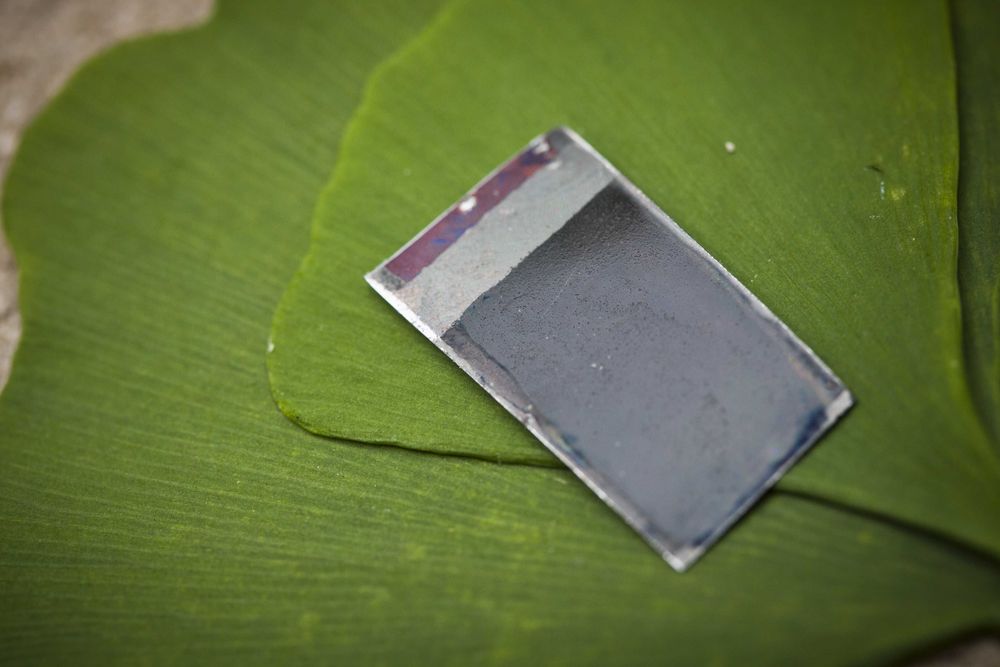
A new method promises to capture an elusive dark world particle.
The is a multi-sport event, an international competition in which people with physical disabilities compete against each other to complete everyday tasks using state-of-the-art technical assistance Systems (“pilots”). Besides the actual competition, the offers a platform to drive forward research on assistance systems for everyday use, and to promote dialogue with the public.
The first organised by the Swiss Federal Institute of Technology in Zurich (ETH Zurich) took place in the Swiss Arena in Kloten north of Zurich in Switzerland on 8 October 2016 and was the first international competition of this kind.[1][2][3] 66 pilots from 25 nations competed in front of a stadium with approximately 4600 spectators.
The next takes place on 13–14 November 2020 in a new format at the teams’ home base instead of in the Swiss Arena in Kloten, Zurich as it had been planned[4]. This is due to the COVID-19 pandemic which requires measures such as social distancing to be adhered. Termed the “Global Edition”, teams will set up their infrastructure for the competition at their home base and capture their races on video instead of competing physically next to each other in Zurich. officials will supervise the pilots which will start individually [5].

This autumn Kotaro Ando, a forty year-old farmer from Tara Town, Saga City (Japan) became the first customer to lease an asparagus picking robot from local agricultural high-tech startup Inaho Co. Ltd. Founded in 2017 and located in the coastal town of Kamakura, Inaho develops robots for agricultural and non-agricultural use. In January 2019, the company opened an office in Kashima (about 110 km from Tokyo) to market their autonomous robot to asparagus and cucumber farmers in Saga City and its surrounding areas. Kotaro Ando was one of these lucky asparagus farmers.
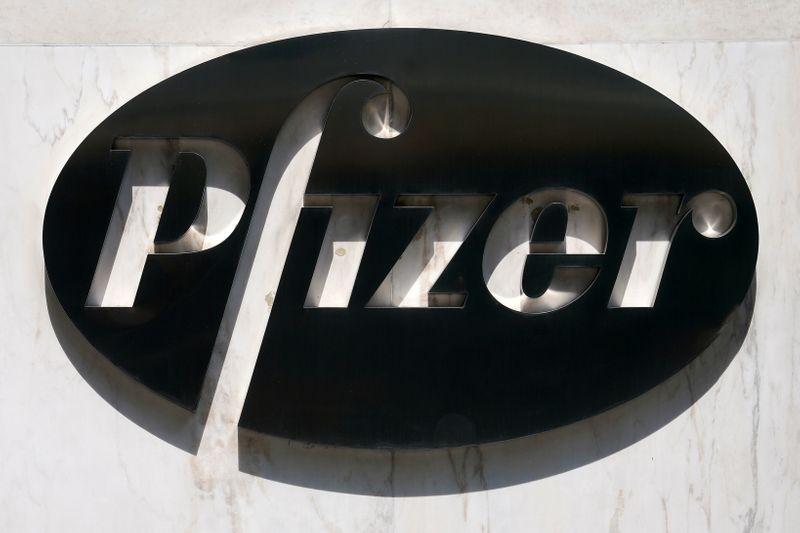
Pfizer Inc said on Tuesday participants were showing mild-to-moderate side effects when given either the company’s experimental coronavirus vaccine or a placebo in an ongoing late-stage study.
(Reuters) — Pfizer Inc PFE.N said on Tuesday participants were showing mostly mild-to-moderate side effects when given either the company’s experimental coronavirus vaccine or a placebo in an ongoing late-stage study.
The company said in a presentation to investors that side effects included fatigue, headache, chills and muscle pain. Some participants in the trial also developed fevers — including a few high fevers. The data is blinded, meaning Pfizer does not know which patients received the vaccine or a placebo.
Kathrin Jansen, Pfizer’s head of vaccine research and development, stressed that the independent data monitoring committee “has access to unblinded data so they would notify us if they have any safety concerns and have not done so to date.”
Tate’s Channel: https://www.youtube.com/channel/UC8ascGWjz8_2Aba52Iyy6Xg
MY STORE: https://www.1st.shop/
Today on this episode of UNUSUAL, I’m going to put the Invisible shield technology to the test!
1000’s of PUZZLES Available here: http://www.puzzlemaster.ca/?a=681162
Buy PLAYING CARDS Here: http://bit.ly/2wkbWFz
_______________________________________________________
INSTAGRAM: https://www.instagram.com/chrisramsay52
TWITTER: https://www.twitter.com/chrisramsay52
______________________________________________________
LEARN A TRICK I CREATED HERE: https://sellfy.com/p/OiqQ/
LIKED A SONG I USED? GET IT HERE: http://share.epidemicsound.com/Ramsay
_______________________________________________________
MY MAIN CAMERA: https://amzn.to/2M9Fl9a
SECOND CAMERA: http://amzn.to/2D0bVtU
BEST LENS FOR VLOGS: http://amzn.to/2DeNzth
BIG LENS FOR B-ROLL: http://amzn.to/2ANaqcA
TOP DOWN CAM: http://amzn.to/2COakmY
MIC: http://amzn.to/2AKIHJQ
TRIPOD: http://amzn.to/2EuP9GO
IF YOU WANT TO SEND ME STUFF:
Chris Ramsay
CP 50011 BP. Galeries Des Monts
St-Sauveur, PQ
Canada
J0R 1R0
#InvisibleShield #Unusual #ChrisRamsay
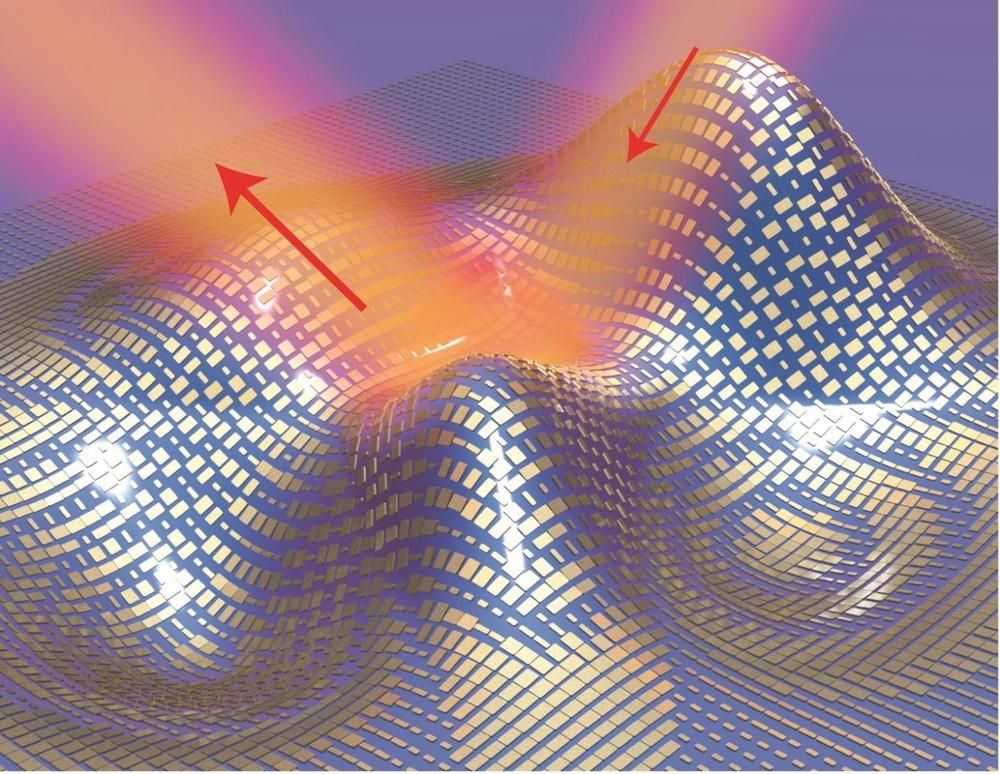
Circa 2015
Invisibility cloaks are a staple of science fiction and fantasy, from Star Trek to Harry Potter, but don’t exist in real life, or do they? Scientists at the U.S. Department of Energy (DOE)’s Lawrence Berkeley National Laboratory (Berkeley Lab) and the University of California (UC) Berkeley have devised an ultra-thin invisibility “skin” cloak that can conform to the shape of an object and conceal it from detection with visible light. Although this cloak is only microscopic in size, the principles behind the technology should enable it to be scaled-up to conceal macroscopic items as well.
Working with brick-like blocks of gold nanoantennas, the Berkeley researchers fashioned a “skin cloak” barely 80 nanometers in thickness, that was wrapped around a three-dimensional object about the size of a few biological cells and arbitrarily shaped with multiple bumps and dents. The surface of the skin cloak was meta-engineered to reroute reflected light waves so that the object was rendered invisible to optical detection when the cloak is activated.
“This is the first time a 3D object of arbitrary shape has been cloaked from visible light,” said Xiang Zhang, director of Berkeley Lab’s Materials Sciences Division and a world authority on metamaterials — artificial nanostructures engineered with electromagnetic properties not found in nature. “Our ultra-thin cloak now looks like a coat. It is easy to design and implement, and is potentially scalable for hiding macroscopic objects.”
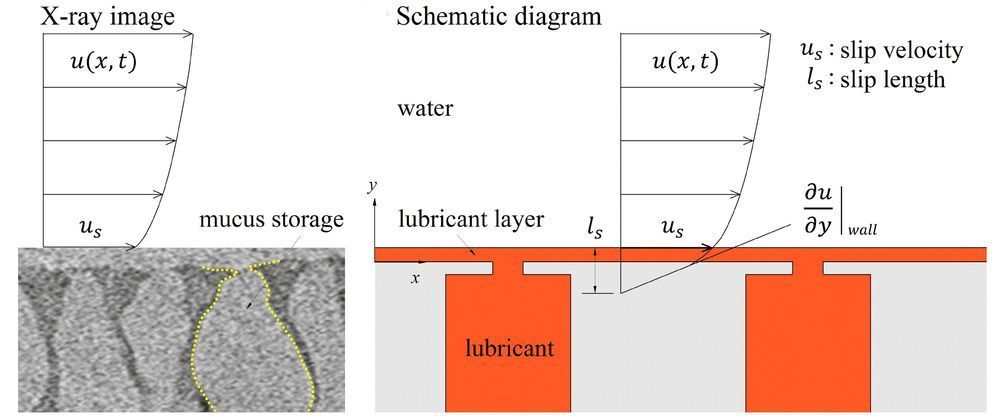
Long-distance cargo ships lose a significant amount of energy due to fluid friction. Looking to the drag reduction mechanisms employed by aquatic life can provide inspiration on how to improve efficiency.
Fish and seaweed secrete a layer of mucus to create a slippery surface, reducing their friction as they travel through water. A potential way to mimic this is by creating lubricant-infused surfaces covered with cavities. As the cavities are continuously filled with the lubricant, a layer is formed over the surface.
Though this method has previously been shown to work, reducing drag by up to 18%, the underlying physics is not fully understood. In the journal Physics of Fluids, researchers from the Korea Advanced Institute of Science and Technology and Pohang University of Science and Technology conducted simulations of this process to help explain the effects.
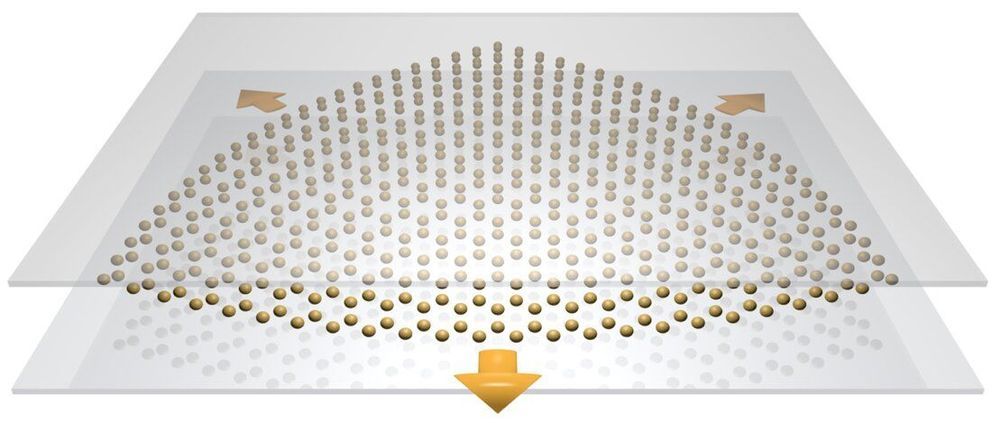
Scientists have discovered an elegant way of manipulating light using a ‘synthetic’ Lorentz force—which in nature is responsible for many fascinating phenomena including the Aurora Borealis.
A team of theoretical physicists from the University of Exeter has pioneered a new technique to create tuneable artificial magnetic fields, which enable photons to mimic the dynamics of charged particles in real magnetic fields.
The team believe the new research, published in leading journal Nature Photonics, could have important implications for future photonic devices as it provides a novel way of manipulating light below the diffraction limit.